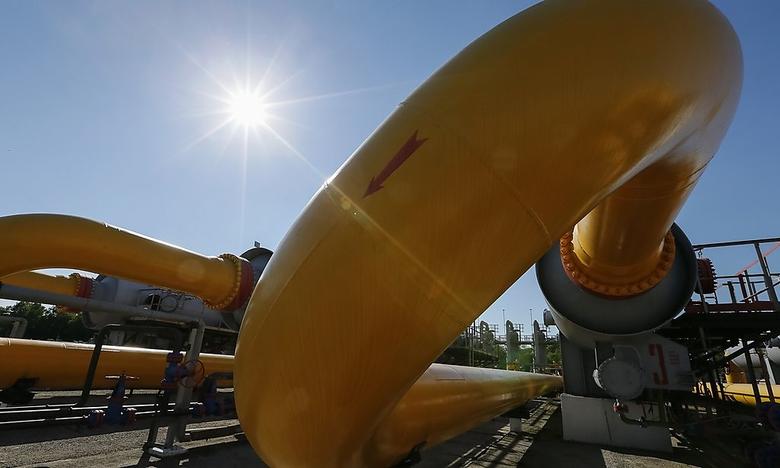
SOUTH STREAM GAIN POINTS

The South Stream pipeline project faces tremendous difficulties ahead, notwithstanding the European Commission's objections. Nevertheless, another set of events points to a positive path ahead, judging by the number of countries that are pushing onwards.
First of all, the Turkish authorities have recently approved the environmental impact research needed for the pipeline to go ahead through the country's Exclusive Economic Zone (EEZ) offshore and en route to the Bulgarian shores. The construction of the part traversing Turkey will commence in first quarter of 2015 and will be composed by four lines of 930 km each reaching a maximum depth of 2,200 meters. Turkey's decision to fast forward the pipeline is related to the fact that after the annexation of Crimea by Russia, Gazprom could shift the route directly to Bulgaria's EEZ, without needing to pass through Turkey. Moreover, Ankara is eyeing to have the entire pipeline ending in its territory in case Bulgaria backs off at the last moment. Should that happened Turkey would become the primal gas hub in Europe, by taking into account the TANAP project and its various gas links already with Russia, Iran and Azerbaijan.
At a diplomatic level, the Ambassador of Russia in Italy, Sergei Razov, stated recently that opposition against the pipeline endangers the economic interests of specific EU countries, having in mind Bulgaria, Italy and others. Rome from its own part seems eager to proceed and the Premier Matteo Renzi is leading the way by proposing to all countries where the project is going to transit to unite together in backing it, politically, whilst the Italian foreign ministry which is the Chair of the EU Presidency until the end of the year, is against any energy sanctions against Russia that would endanger common projects. It's also interesting to note that over the past year, there has been a notable increase of gas quantities exported from Gazprom to Italy, as well as, oil sales and joint investment projects despite the Ukrainian crisis or perhaps because of it.
Serbia, another country in between the transit route, has emphatically stated through its Prime Minister Aleksandar Vucic that the country does not accept any ultimatums regarding how it is going to develop relations with Russia and reaffirmed the back up for South Stream by adding that his country stands to lose €350 million per year that and a multibillion euro initial investment that no one else is willing to provide in case the project is cancelled.
Likewise, Montenegro which is a neighboring country, through its Economy Minister Vladimir Kavaric, announced that his country desired to be included in the South Stream gas pipeline project. It should to be noted that until now the country was supporting the prospective project of the Ionian-Adriatic Pipeline (IAP) a Western-Balkan spur of the TAP-TANAP system of pipelines, known as the Southern Corridor, thus this shift is of importance and of great relevance regarding the aforementioned. In similar spirit the Hungarian government through its Prime Minister Viktor Orban, assured into the continuation of the project regardless of EU objections.
Lastly Austria, through its energy group OMV, concluded all agreements regarding the construction of South Stream in the country with Gazprom and finalized plans for the first gas flow in mid-2016. The Austrian part will deliver 30 bcm per annum via the Baumgarten gas hub and by end of 2014 all necessary licensing will be handed out, according to the most recent state announcements. The inclusion of Austria is of utmost importance due to the existence of a hub infrastructure that facilitates the accumulation and distribution of significant quantities of gas and their export to neighboring countries. Thus prices will tend to be reduced, while energy security will be increased due to the bypassing of Ukraine that is already in a state of war and on the brink of economic and societal collapse, a trend that will be clearly shown in autumn when the local energy crisis will be visible and harsh.
On Sunday, OMV CEO Gerhard Roiss was quoted as saying that the current stand-off between Russia and the West over the situation in Ukraine will not affect the scheduled construction of the gas pipeline.
Speaking to the Financial Times, he commented: "Nobody can tell you not to build a pipeline. It's a matter of national law... Everybody can decide for themselves. A pipeline is a 50-year project, so one should look at things realistically... A few months is not an issue,"
In a nutshell, it is probable to assume that if there is no breakthrough into stabilizing Ukraine and re-instating its role as a reliable transit country for Russian gas into Europe, then South Stream clearly gains points to almost all countries in Southeast and Central Europe.
naturalgaseurope.com




